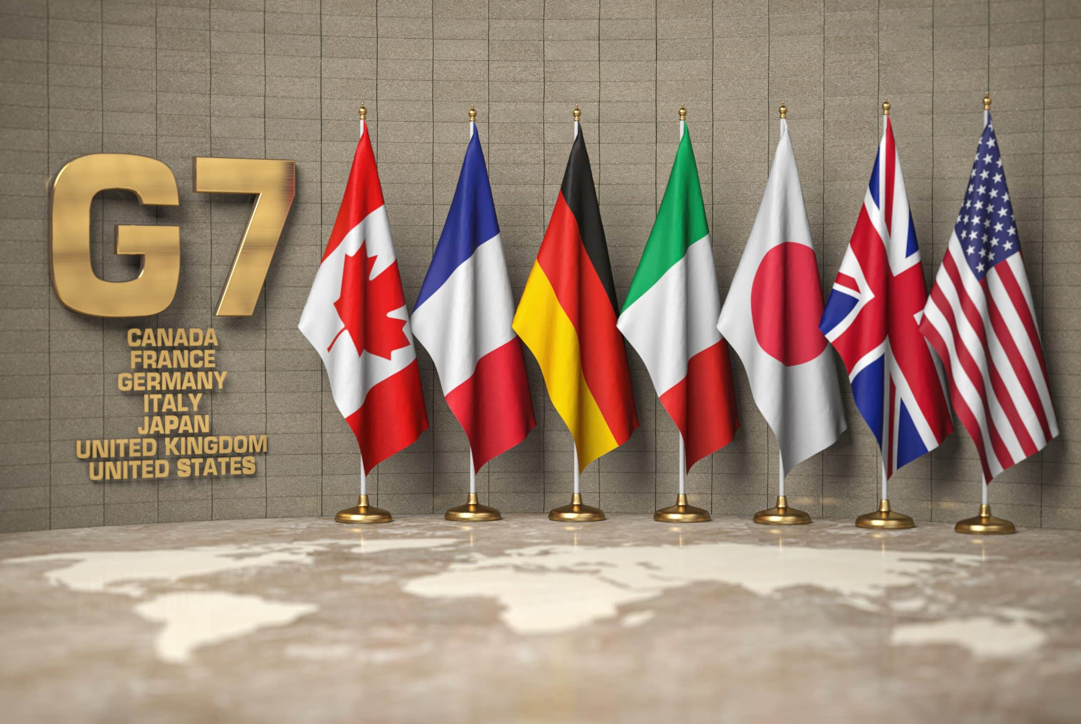Li Huan, Deputy Director at CICIR's Institute of Hong Kong and Macao Studies, and Distinguished Research Fellow, Xiamen University
Sep 05, 2023
If a report in the Washington Post is true, the United States is playing politics by blocking John Lee Ka-chiu’s attendance at an upcoming APEC meeting in San Francisco. This must not be allowed to become a spark that starts another prairie fire in China-U.S. relations.
Luo Liang, Assistant Research Fellow, National Institute for South China Sea Studies
Jul 06, 2023
The arms trade market has always been an indicator of the international security situation, and various acquisitions are now clouding the future of the Asia-Pacific region. Several countries are currently engaged in the most significant arms race since World War II.

Sun Chenghao, Fellow, Center for International Security and Strategy of Tsinghua University; Munich Young Leader 2025
May 30, 2023
The summit did not alter the overall direction of the United States or its core group of allies. U.S.-led competition with China only entered a new phase. America’s objectives have not changed, although it now sees the need to make adjustments.
Brian Wong, Assistant Professor in Philosophy and Fellow at Centre on Contemporary China and the World, HKU and Rhodes Scholar
May 16, 2023
China and India are Asia’s two largest countries, and both are rising quickly to claim powerful positions in the international order. Their proximity has made them natural competitors - but their relationship’s pillars and challenges will be important to understand in the 21st Century.
Fan Gaoyue, Guest Professor at Sichuan University, Former Chief Specialist at PLA Academy of Military Science
Mar 08, 2023
The European Deterrence Initiative resulted in the Russia-Ukraine conflict eight years after its creation. Will the PDI lead to a U.S.-China or Japan-China conflict — or any other conflict in the days to come? The situation should be watched closely with high vigilance.

Da Wei, Director of Center for International Strategy and Security; Professor at Tsinghua University
Feb 14, 2023
It’s not in China’s best interests to be trapped in a bilateral tit-for-tat with the United States. We can do better by reaching out constructively to other developed countries. We will win the contest if we can do this.
Chen Jimin, Guest Researcher, Center for Peace and Development Studies, China Association for International Friendly Contact
Feb 07, 2023
The shift has been limited so far, so China need not overreact. It should closely monitor where NATO is heading, however. The best way to deal with it is to run its own affairs well and buttress its ability to rise above external shocks and challenges.
Zhou Xiaoming, Former Deputy Permanent Representative of China’s Mission to the UN Office in Geneva
Feb 07, 2023
America shamelessly uses other countries to further its own agenda, disregarding their needs. It has split the world and kept it in a state of perennial conflict since World War II and is now invoking the nightmarish return of the Cold War.
Zhang Yun, Professor, School of International Relations, Nanjing University
Feb 07, 2023
Jens Stoltenberg, NATO’s head, visited South Korea and Japan recently on a proselyting mission to spread the concept of military deterrence. But China and others have adopted more benign security concept. The region cannot afford to repeat the mistake of replacing dialogue with a show of force.
Zhai Kun, Professor at School of International Studies; Deputy Director of Institute of Area Studies, Peking University
Feb 01, 2023
Relations between China and the Philippines have a direct bearing on stability in the South China Sea and peace in the wider Asia-Pacific region. Like waves in the sea itself, the situation fluctuates. But sensible leaders and a clear outline for settling disputes can prevent a breakdown.
Back to Top

- China-US Focus builds trust and understanding between the U.S. and China through open dialogue among thought leaders.
- Our Offerings
- Topics
- Videos
- Podcasts
- Columnists
- Research Reports
- Focus Digest
- Stay Connected
-
Thanks for signing up!
- Get the latest stories from China-US Focus weekly.